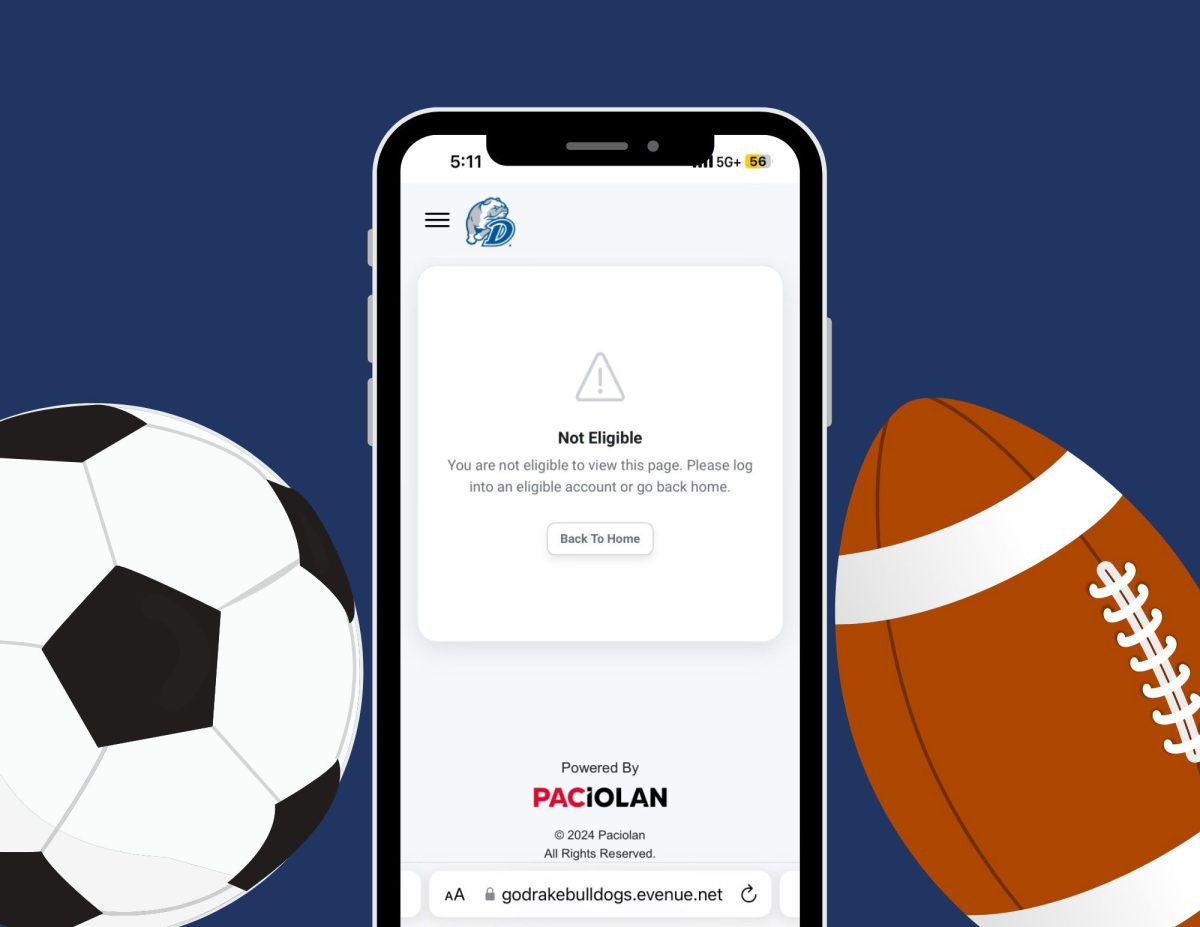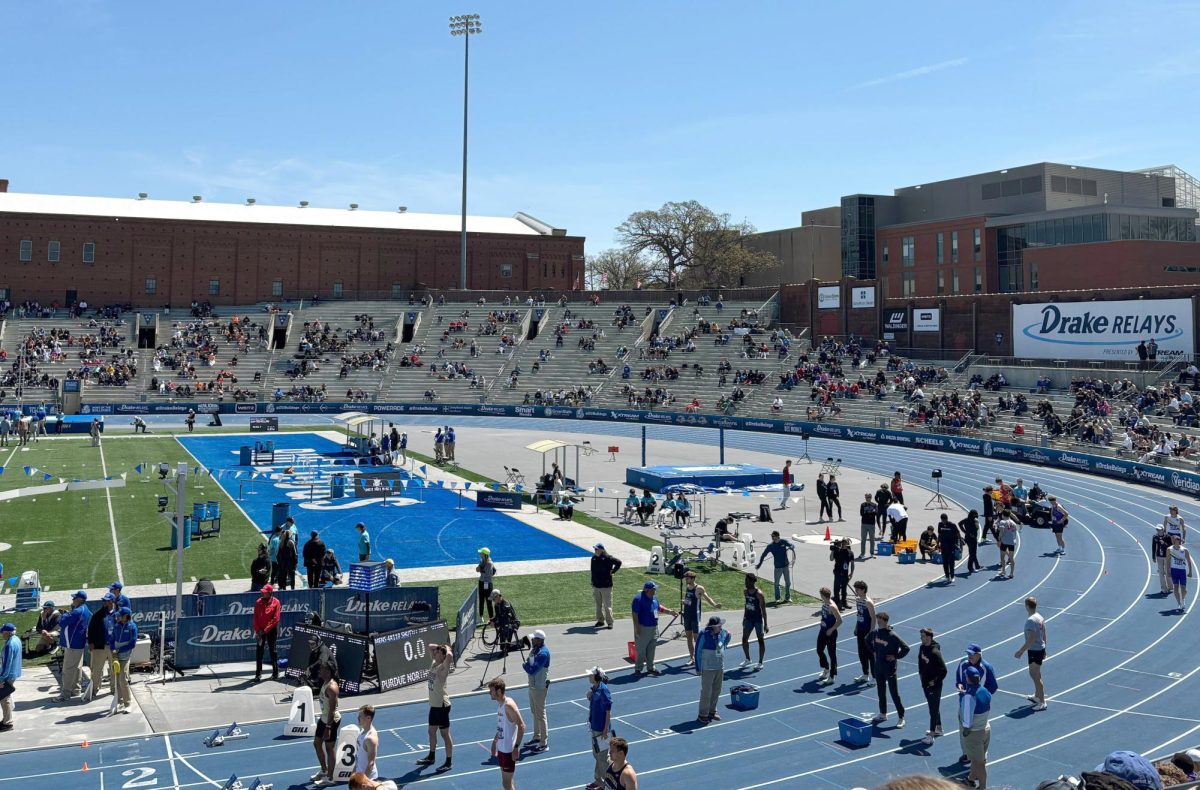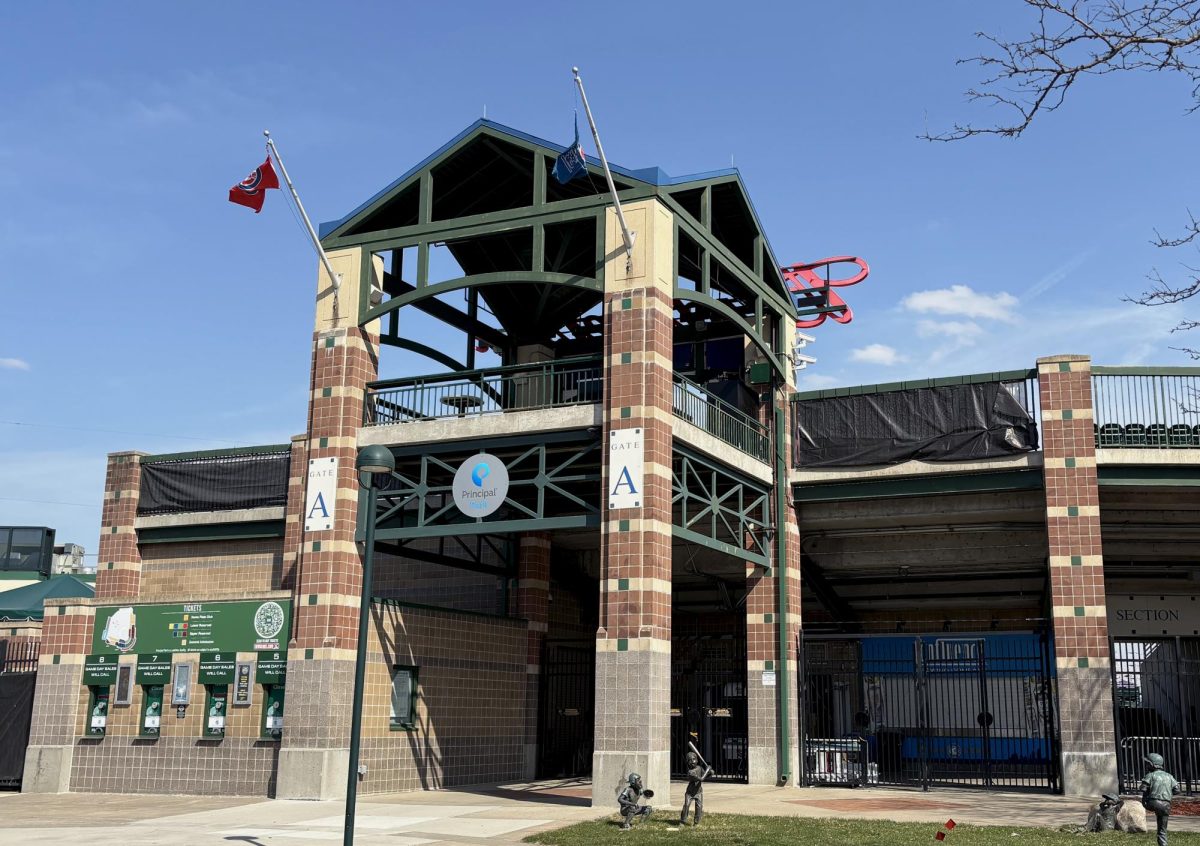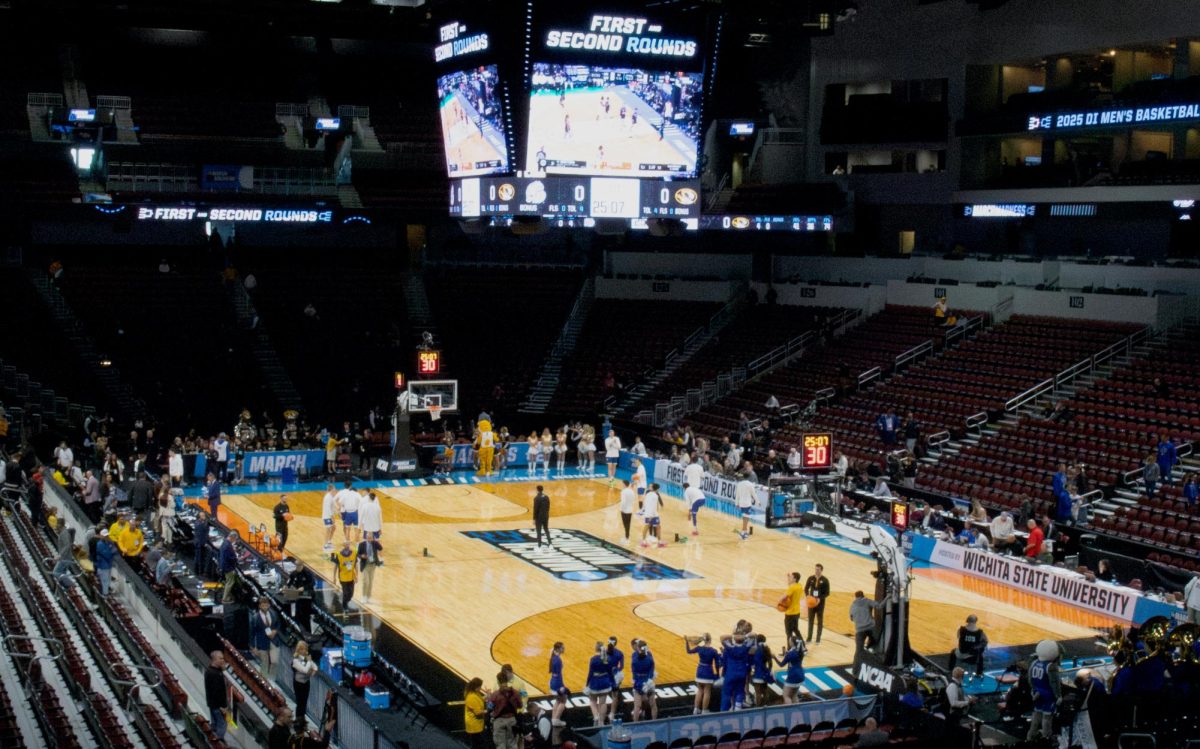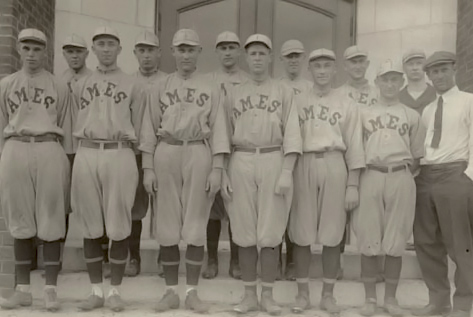On Tuesday, Aug. 27, Drake Athletics sent out an email that was supposed to inform new and returning students of a change to how students claim tickets on game day. However, not everyone received this email. So, when fans started to pack the Drake Stadium two days later on Thursday, many students were left unable to enter the game.
This issue left these students wondering why the switch was made, but also why so many didn’t know about it.
Before Drake University adopted virtual IDs, students would present their physical ID card at the entrance of sporting events to be let into the game. Because most students carry their IDs for anything from getting into residence halls to printing papers for class, it was easy for students to show up to a game last minute. But it also meant students were out of luck if they forgot their card at home.
When virtual IDs were implemented, physical cards started to slowly become a thing of the past for a number of students on campus – including first-years, who weren’t issued physical ideas. Students could now eat at Hubbell, print paper, get into buildings and buy their favorite Starbucks drink all by tapping their phone or smart watch to the reader.
Unlike the physical IDs, though, the virtual IDs don’t have a barcode to scan in cases of games or activities for attendance. Instead, they use virtual tickets on students’ phones. The issue, then, was how students who didn’t know about the change could get tickets..
“I thought it was easy and streamlined to be able to show up with your school ID whenever you wanted for any sporting event,” senior Matt Stokovich said. “It made it really easy for everyone to get involved, including students on campus who are just looking for something to do after a long week.”
There were also issues of people missing notifications, as for some, even though the communication was sent to them, it went to their spam folder. For first-years trying to enjoy their first Drake football game, this situation was even more confusing.
“I heard about mentions of [the virtual ID system] but would not have known what to do without talking to people. If I hadn’t made the connections I had with people, I wouldn’t have known what to do when my app did malfunction,” first-year Sydney Laursen said. “It would be beneficial having more information about it, especially as it is new and everyone is working through bugs.
Like many other first-years, Laursen did not know about the switch. Because the email only went to students who were on the existing contact list, anyone new to campus or the athletic scene were not told about this change.
Students who navigated to the page to get their tickets had to first find where they were supposed to go. As many looked to purchase the tickets, some students also struggled to verify their accounts because the website could make the connection between the student ticket tab and verified users. As a result, security workers overlooked non-students in line for the Sept. DATE game to cope with the overwhelming student demand.
Fortunately, students experiencing this issue have a few options for tickets if their account isn’t connecting.
Students experiencing this issue can bring their student ID or virtual ID to the ticket desk and get a physical ticket to exchange at the gate. This way, they have a definite backup in a last-minute ticket dilemma without having to worry about technology failing them. The downside to this, however, is that students will have to wait in the long line of ticket buyers who waited until the last minute to purchase their tickets.
Students who want to know the new policies and investigate the ticket can go to the Drake Athletics website and look through the tickets tab on the drop down under “Student Tickets.” Students can also reach out to the athletic department through email to get their student verification sorted out to avoid setbacks that could cost them missing key parts of future games.
The Drake Athletic Ticket Office did not respond to a request for comment.

